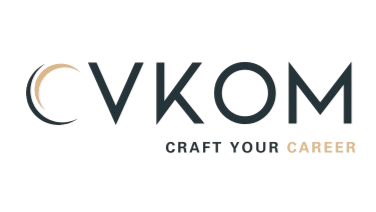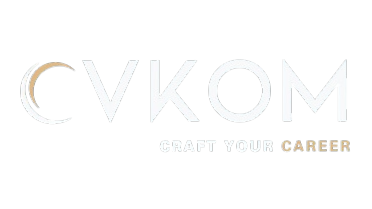This guide emphasizes the importance of showcasing technical expertise, industry knowledge, and problem-solving skills in a resume for the energy and oil sector. It provides a step-by-step structure and essential components to craft a standout resume that gets noticed by employers.
How to
Write a Resume for Jobs in the Energy and Oil Sector: A Detailed Guide
The energy and oil sector is one of
the most demanding industries, characterized by rapid advancements, complex
projects, and high safety standards. To stand out in this competitive field,
crafting a tailored resume that highlights your technical expertise, industry
knowledge, and problem-solving skills is critical. This guide explores the
essential components of a standout resume for energy and oil sector jobs,
offering actionable tips and examples.
Understanding
Industry Expectations
The energy and oil industry values
professionals who can:
- Demonstrate technical expertise in engineering,
operations, or management.
- Ensure compliance with safety and environmental
standards.
- Exhibit a strong understanding of project management and cost efficiency.
- Adapt to technological advancements and
industry-specific tools.
- Showcase global and cultural awareness for
international projects.
Structuring
Your Resume for Maximum Impact
1.
Choose the Right Format
Select a layout that emphasizes your
experience, certifications, and technical skills:
- Reverse Chronological Format: Best for professionals with consistent work history in
the sector.
- Functional Format:
Ideal for those transitioning into the energy and oil sector or
emphasizing specific skills.
2.
Create a Strong Header
Include your name, contact
information, and relevant professional links such as LinkedIn or an online
portfolio.
Example:
Jane Smith
Email: jane.smith@email.com
| Phone: +1-555-123-4567 | LinkedIn: linkedin.com/in/janesmith | GitHub:
github.com/janesmith
3.
Craft a Tailored Professional Summary
Example:
"Highly skilled petroleum engineer with 8+ years of experience in upstream
oil exploration and production. Proven track record in optimizing extraction
processes and reducing operational costs by 15%. Adept at ensuring compliance
with HSE standards and leading cross-functional teams to deliver projects on
time and within budget."
4.
Highlight Relevant Work Experience
Focus on achievements that showcase
your technical skills, leadership, and contributions to project success.
Include quantifiable results where possible.
Example:
Senior Petroleum Engineer
XYZ Energy Solutions | Jan 2017 – Present
- Led a team in drilling operations, achieving a 10%
increase in production efficiency through innovative extraction
techniques.
- Managed a $15M drilling project, completing it 20%
under budget without compromising quality.
- Implemented advanced reservoir simulation models,
improving resource estimation accuracy by 25%.
Field Engineer
ABC Drilling Corporation | June 2014 – Dec 2016
- Conducted real-time monitoring of drilling operations,
minimizing downtime by 30%.
- Collaborated with geologists and safety officers to
ensure compliance with environmental regulations.
- Reduced equipment failure rates by 15% through
proactive maintenance protocols.
5.
Emphasize Technical Skills
Create a dedicated section for
industry-specific tools, software, and technical competencies.
Example:
Technical Skills:
- Drilling and Completion Operations
- Reservoir Simulation Software (Petrel, CMG)
- Health, Safety, and Environmental Compliance (HSE)
- AutoCAD and MATLAB
- Pipeline Design and Maintenance
6.
Include Certifications
Examples:
- IWCF (International Well Control Forum) Certification
- NEBOSH International General Certificate in
Occupational Health and Safety
- Project Management Professional (PMP)
7.
Highlight Education
List degrees and coursework relevant
to the energy and oil sector.
Example:
Bachelor of Science in Petroleum Engineering
University of XYZ | Graduated May 2013
- Relevant Coursework:
Advanced Drilling Techniques, Reservoir Engineering, Environmental Impact
of Oil Extraction
8.
Add a Section for Projects
Highlight key projects that
demonstrate your problem-solving skills and technical expertise.
Example:
Key Projects:
- Enhanced Oil Recovery Pilot Project: Led a multidisciplinary team to develop a polymer
flooding process, increasing recovery rates by 20%.
- Pipeline Integrity Management: Designed a predictive maintenance strategy for
pipelines, reducing failures by 30%.
9.
Optimize for ATS (Applicant Tracking Systems)
Incorporate keywords from the job description, ensuring your resume aligns with the requirements.
Example Keywords: Hydraulic Fracturing, Subsurface Engineering, Project
Management, Risk Assessment, Offshore Operations
Additional
Tips for Energy and Oil Sector Resumes
- Quantify Achievements: Use numbers to showcase your impact (e.g., "Saved
$2M annually through process optimization").
- Highlight Global Experience: If you’ve worked on international projects, emphasize
cultural adaptability and multilingual skills.
- Showcase Leadership:
Include examples of managing teams or projects to demonstrate leadership
abilities.
- Proofread Carefully:
Attention to detail is critical in the energy and oil sector, so ensure
your resume is error-free.
Example
Resume for the Energy and Oil Sector
Header
John Doe
Email: john.doe@email.com
| Phone: +1-555-123-4567 | LinkedIn: linkedin.com/in/johndoe
Summary
"Experienced mechanical
engineer with 10+ years in the energy and oil sector, specializing in pipeline
design and maintenance. Proven expertise in reducing downtime and enhancing
operational efficiency through innovative engineering solutions. Seeking to
contribute to large-scale energy projects with a focus on sustainability."
Experience
Senior Mechanical Engineer
ABC Energy Corp | Jan 2016 – Present
- Designed and supervised the construction of pipelines,
achieving a 25% reduction in material costs.
- Spearheaded a safety initiative that improved
compliance with HSE standards, reducing incident rates by 35%.
- Led a cross-functional team on an offshore drilling
project, completing it 15% under budget.
Junior Engineer
XYZ Drilling | June 2012 – Dec 2015
- Conducted thermal analysis for pipeline systems,
enhancing efficiency by 10%.
- Collaborated with project managers to optimize resource
allocation, saving $1M annually.
Skills
- Hydraulic Fracturing
- Offshore and Onshore Operations
- AutoCAD, MATLAB, and Petrel
- Health and Safety Management (HSE)
Certifications
- IWCF Well Control Level 4
- NEBOSH International Certificate
Education
Bachelor of Science in Mechanical
Engineering
University of XYZ | Graduated May 2012
Projects
- Offshore Platform Design: Designed a modular platform for offshore drilling,
reducing installation time by 20%.
- Energy Optimization Strategy: Implemented a renewable energy system for onshore
facilities, cutting carbon emissions by 15%.
Why
Choose CVKOM for Your Resume?
At CVKOM, we specialize in
crafting tailored resumes for energy and oil sector professionals. Our platform
offers:
- Customizable Templates: Designed for technical and managerial roles.
- AI-Powered Optimization: Align your resume with specific job descriptions.
- ATS Compatibility:
Ensure your resume passes automated screening systems.
- Proofreading Tools:
Guarantee error-free and professional results.
Conclusion
Writing a resume for the energy and
oil sector requires a strategic focus on technical skills, industry
certifications, and measurable achievements. By tailoring your resume to
reflect the demands of the industry, you can position yourself as a top candidate.
Let CVKOM help you craft a professional resume that unlocks
opportunities in this dynamic field.
Start building your energy and oil
sector resume today with CVKOM—where expertise meets innovation!






